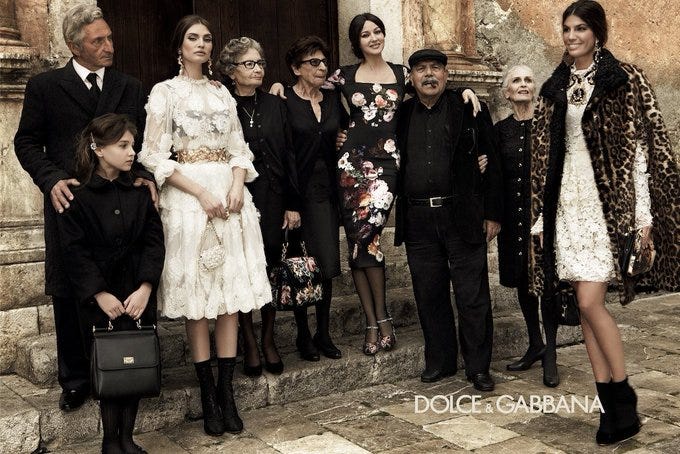Happy Thanksgiving to all my readers in the United States. Although this year has been difficult in some ways, I genuinely have much to be thankful for this year.
One of my practices for nearly a decade has been to keep a “thanks log” of things that happen to me that I should remember to be thankful for. I’ve never been into journaling. So I just make this a simple dated bullet point list in a Word document. It’s good to review at Thanksgiving, at the end of the year, or whenever I need to remind myself of all the things that have gone right in my life. By nature we tend to focus on what’s going wrong, but it’s also important to remind ourselves of all the things that have gone well.
Here is some content to enjoy over your holiday. Also, I am opening this post as an open thread for comments from anyone, not just Subscribers. Let us know what you think of this or anything else. And please add your suggestions for future content you’d like to see.
Governments Promoting Destructive Vices
My podcast this week was about how so many things that you used to have go to the mob for - gambling, drugs, loan sharking, the sex trade - are now being actively promoted by our governments. They are preying on the most vulnerable in society to make a buck, and putting a moral seal of approval on dubious activities.
My main focus was the expansion of gambling, especially sports betting. The New York Times just published a special series looking at this phenomenon that’s worth reading over the holiday.
NYT: Cigars, Booze, Money: How a Lobbying Blitz Made Sports Betting Ubiquitous - shows how the gambling lobby basically owns state legislatures. Also details how the leagues decided to get in on the action.
NYT: Why States Were Unprepared for the Sports-Betting Onslaught - Because they are owned by lobbyists, basically.
NYT: How Colleges and Sports-Betting Companies ‘Caesarized’ Campus Life - In a particularly outrageous development, colleges are signing multi-million deals with casino companies to promote betting to their students.
The Washington Post also recently wrote about another sports betting scam. If someone starts winning big on their platform, the companies severely restrict how much that person can bet. In other words, you are only allowed to bet big if you lose big.
In the UK’s Observer, a woman talks about how she lost £40,000 after getting addicted to gambling during the pandemic. It has interesting stats about sports gambling in the UK, such as that 70% of sports gambling revenues come from only 5% of punters.
Gambling isn’t the only vice states are promoting. They are legalizing marijuana and in some cases actively touting it as an industry. As with most of these moves to mainstream vice, one purported reason is to eliminate the criminal element by regularizing the industry. As it turns out, this doesn’t actually happen. In the case of marijuana, the LA Times did a major investigation of the effects of legalization there. Illegal activity has only grown and gotten worse.
There’s also been a push in some quarters for greater legalization of “sex work.” I would not be surprised if prostitution were broadly legalized here at some point. It’s already legal in parts of Europe like Germany. A column at Unherd takes a look at that country’s sex trade, calling German “Europe’s bordello.” The country has 400,000 prostitutes. You won’t be surprised to learn that even though prostitution is legal, sex trafficking and abuse remains rampant.
If you don’t normally listen to my podcast, this one is a good sample to check out.
Fashion Sicilian Style
In 2012, Italian fashion house Dolce & Gabbana created an ad campaign featuring Monica Belluci and others that was a celebration of the Sicilian family.
The aesthetics of this campaign are extraordinarily powerful. It’s well worth clicking over to look at all the images.
It’s hard to imagine a fashion company producing something like this today.
Dance, Ballerina, Dance
Something I highlight from time to time is how the themes I explore in my newsletter are amply attested to in the culture, even when not explicitly acknowledged.
This song “Ballerina,” sung by the great Mel Tormé, is the story of a ballerina who gives up love in the quest for career success. I’m not sure when it was originally written or recorded.
Whirl, ballerina, whirl / And just ignore the chair that's empty in the second row
This is your moment, girl / Although he's not out there applauding as you steal the show
Once you said his love must wait its turn / You wanted fame instead
I guess that's your concern / We live and learn
And love is gone, ballerina, gone / So on with your career
You can't afford a backward glance / Dance on and on and on
By the way, Mel Tormé was also a composer, and co-wrote “The Christmas Song” aka “Chestnuts Roasting on an Open Fire.”
Men Should Sing Together
You’ve probably seen the amazing clips of Fiji’s rugby team singing a hymn after winning an Olympic gold medal. A twitter user posted another short clip of them singing a different song before a regular game.


A group of men singing together can be surprisingly beautiful and powerful. It’s something we should do more often.
Don’t Let This Happen to You

If you do some Black Friday shopping, be careful out there. If you’d like to buy me a Christmas present, become a paid subscriber here and get exclusive content, podcast transcripts, commenting privileges and more.
Have a Happy Thanksgiving, everyone!







The sports gambling people were very smart in how they approached their push. Sports gambling itself (betting outright on event outcomes) would have been harder to pass given the general skepticism about it in the US as recently as 10 years or so ago, so the industry turned to fantasy sports, which was very popular already and was arguably a combination of "skill" (in choosing the right players for one's fantasy team(s)) and "luck" (in terms of the performance of the players) -- and given the existing popularity of this activity already, when it became monetized by DraftKings and FanDuel, it was like the gateway drug for wider sports betting. A few years of that and the appetites of millions were well and truly whetted for straight-up betting on events, no fantasy league required, and so the sentiment publicly changed significantly in a way that would not have been the case had people not been "softened" or "warmed up" by means of gambling-ized fantasy sports.
It was a clever tactic, and undoubtedly one that was taken with an eye on similar tactics that have been used by social movements in the US more broadly -- take an easier case, get it established, and then build on that once you have people accustomed to the easier case. So you start with civil unions, proceed to gay marriage and then you eventually get to transgender issues and puberty blockers and women's prisons and so on. But the point is you don't *start* with those issues -- if you do, you're dead in the water. So you start with something palatable and you build from there. You start with civil unions, you start with fantasy league betting. And then you end up with puberty blockers and prop bets on how many sacks in the third quarter and so on. Sequencing is everything, and we now know very well that public opinion can be easily moved in a specific direction if you pick the right issue and sequence that issue first, and proceed at a pace that allows that to be assimilated before you get to the hardcore stuff on the wish-list. It's how "things are done" today.
And on the shopping list ... boy, people love to hate Jonathan Franzen, don't they? I guess it goes to show that if you have the audacity to deviate even a smidge from the party line on something, you get hated for it, despite the fact that Franzen can't be described as anything but an orthodox leftie really. It's an odd kind of in-group puritanism the left has going on these days it would seem.
I really like the fashion family style article. It Would be great if creatives could start creating with that goal in mind and while also promoting some sort of identity rather than this blank white and black no identity thing